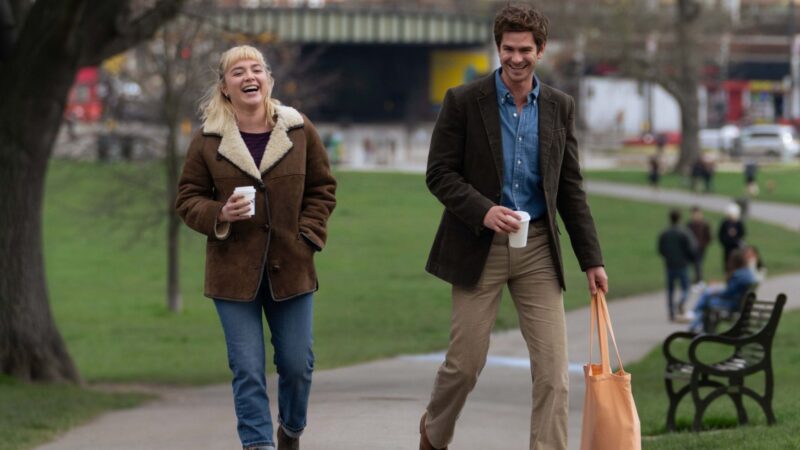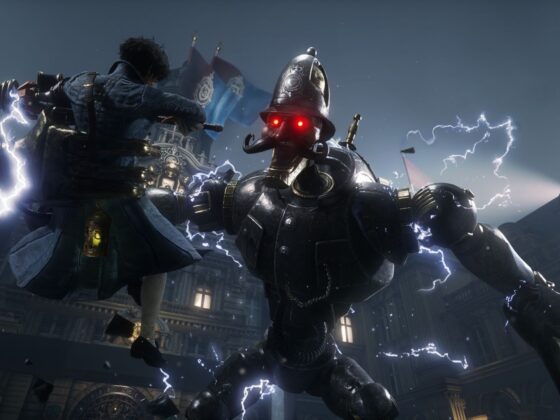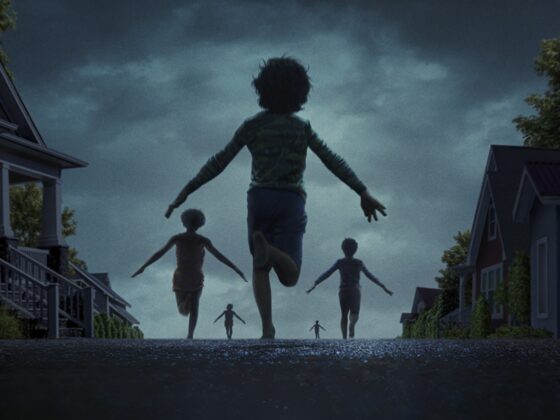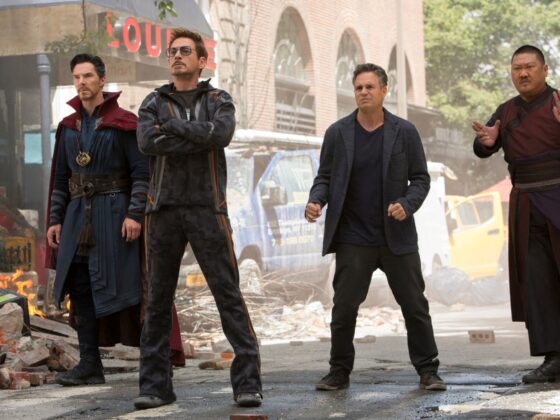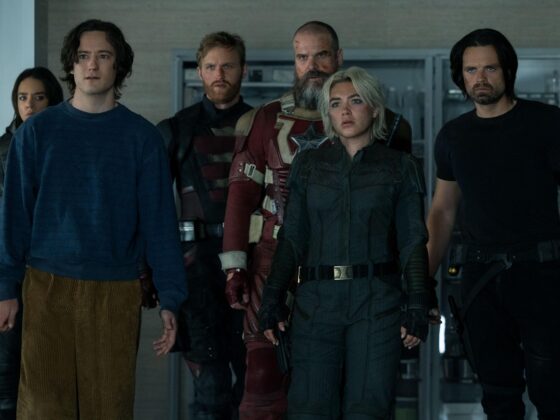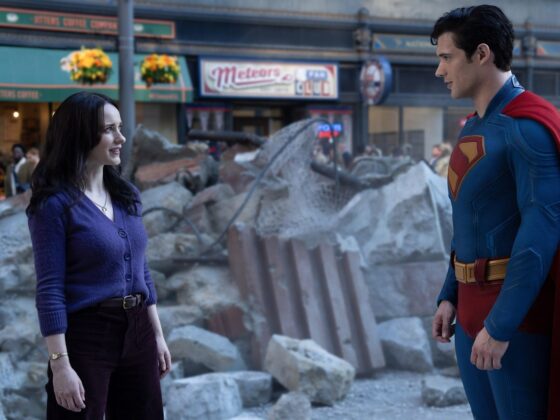500 Days of Summer had this annoying timeline that kept jumping back and forth between Tom’s good days and bad days with Summer. We Live in Time basically took that concept and said, “I’ll do you one better!” As a result, it turned out to be a romantic drama that wants so badly to be profound that it forgets to be engaging.
Let me be clear: Florence Pugh and Andrew Garfield are incredible actors who could probably make reading a phone book entertaining, and their chemistry here is off the charts. The problem, however, is that the movie keeps ‘ping-ponging’ between timelines. I actually found myself wishing the movie would just end already so I could do something else with my time (spoilers incoming).
We Live in Time follows Almut Brühl (Pugh) and Tobias Durand (Garfield), who meet in what has to be the most British meet-cute since Hugh Grant stammered his way through Notting Hill. She hits him with her car while he’s out looking for a pen to sign his divorce papers (failed involuntary vehicular manslaughter isn’t so bad if it gets you one step closer to true love).
From there, we hop, skip, and jump through their relationship timeline. One minute they’re falling in love, the next she’s battling cancer, then we’re back to their first date, then forward to a cooking competition, and somewhere in between, there’s a baby being born in a gas station bathroom during what feels like a Friends episode that got mixed up in the editing room.
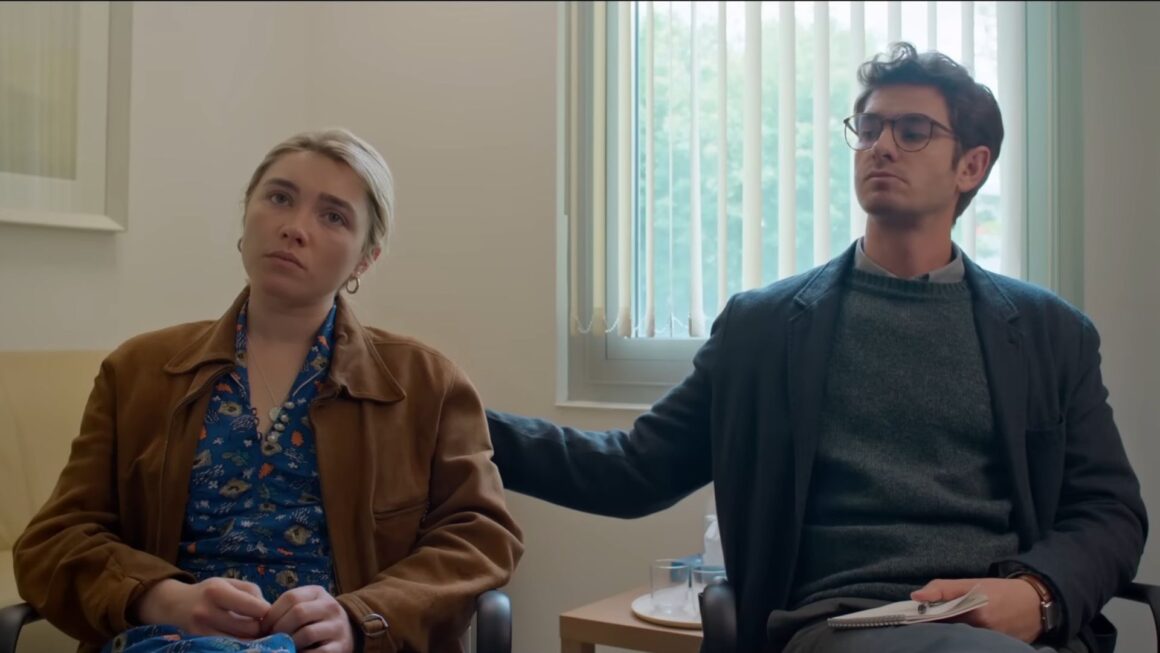
Here’s where things get interesting (and by interesting, I mean frustrating). Almut, who’s already beaten cancer once, learns it’s back and decides that instead of going through treatment again, she’d rather spend her remaining time competing in a prestigious cooking competition.
Look, I get it – following your dreams is important, but at some point, the director, John Crowley, seems to forget she has a whole child at home. Little Ella feels more like a plot device than a character, showing up just often enough to remind us she exists but not enough to make us feel the weight of Almut’s decisions. Thank God Pugh and Garfield know how to act.
Pugh brings the same fierce energy she gave us in Little Women, making Almut both infuriating and endearing. As for Garfield, the man could win an Oscar for just listening to other actors speak. His face does more acting in silence than most actors do with a page of dialogue. When Almut tells him about her cancer’s return, Garfield’s expression carries the weight of every person who’s ever received devastating news about a loved one (for a second there those teary, glassy eyes had me questioning my sexual orientation).
I loved Crowley’s work in 2015’s period drama Brooklyn, but somehow, he seems to have forgotten what made that film work so well – its simplicity. Instead, he’s gone for a narrative structure that’s unnecessarily complex, which is baffling, because it doesn’t need to be.
We Live in Time does have its moments of brilliance. The gas station birth scene, as ridiculous as it sounds, somehow works because it feels real despite being absolutely nuts. Also, when the movie stops trying to be clever with its timeline, we get genuine moments of connection between our leads that remind us why we fell in love with them in the first place.
Here’s the thing, though – and I hate to say this about a movie dealing with cancer – it’s trying too hard to make us cry. We Live in Time doesn’t trust us to feel things on our own, so it keeps piling on the emotional manipulation until you’re either crying from genuine feeling or sheer exhaustion.
Ironically, Crowley wants to make a profound statement about living in the moment while simultaneously showing us ALL the moments, shuffled like a deck of cards. It’s a shame because somewhere in there is a beautiful, simple story about love, loss, and the choices we make when time becomes precious.
Still, if you’re a fan of either Pugh or Garfield (and who isn’t at this point?), you’ll find enough here to justify the one hour and forty-seven minutes of your time. My suggestion?Just surrender to the confusion and focus on those magical moments when the film gets out of its own way and lets its stars shine.
Verdict
Verdict-
Storytelling5/10 AverageEvaluation of the plot, character development, and narrative structure.
-
Cinematography6/10 GoodAssessment of camera work, lighting, and visual aesthetics.
-
Acting8/10 ExcellentEvaluation of the performances and character portrayals.
-
Soundtrack7/10 Very GoodEvaluation of the film's music, sound design, and use of audio elements.
-
Emotional Impact6/10 GoodThe film's ability to evoke genuine emotions and leave a lasting impression.
-
Technical Execution5/10 AverageEvaluation of the film's technical aspects, such as editing, special effects, and production values.
-
Originality4/10 MediocreThe film's level of innovation, uniqueness, and freshness.
